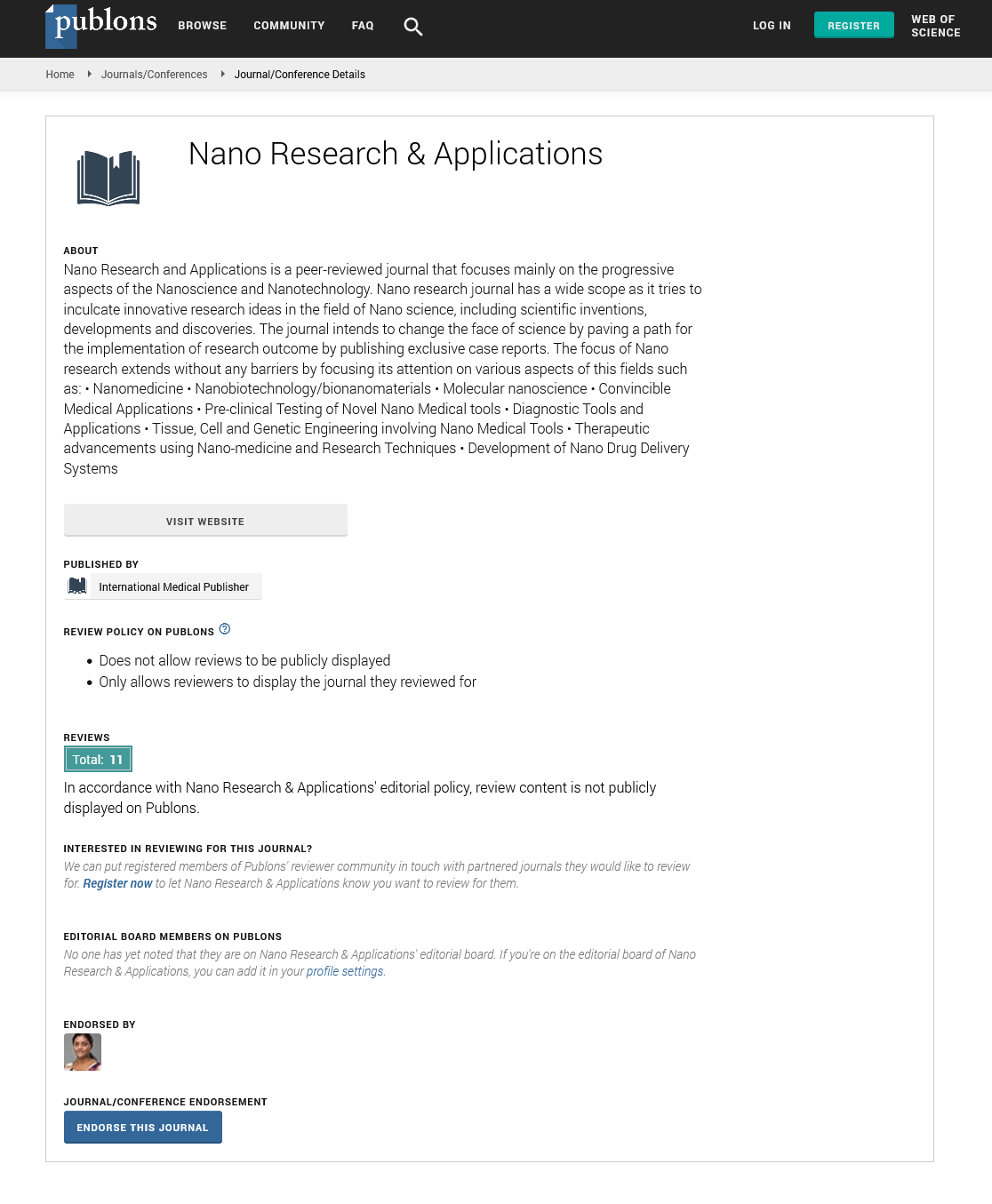ISSN : 2471-9838
Nano Research & Applications
Pre-formulation of Nanostructured Lipid Carriers (NLC) for drug delivery: Excipient-excipient interaction
Joint Event on 25th Nano Congress for Future Advancements & 12th Edition of International Conference on Nanopharmaceutics and Advanced Drug Delivery
August 16-18, 2018 | Dublin, Ireland
Laura Oliveira Nascimento
State University of Campinas, Brazil
ScientificTracks Abstracts: Nano Res Appl
DOI: 10.21767/2471-9838-C3-014
Abstract
NLCs are composed by at least one solid lipid, one oil, surfactant and water. Previous works used regular purified oils and focused mostly on dosage form optimization; however these approaches present contaminants that can mask or mislead interactions, whereas optimization designs allows few excipients to be tested. Therefore, our goal was to assess physicochemical interactions due to super refined lipids and surfactants in NLCs loaded with lidocaine. Free drug analysis included: drug solubility and partition coefficient, thermal profile of solid excipients. NLC was formulated according to nonregular design of experiment (Hall 2, 2 levels of substance concentration, 8 excipient inputs and 1drug input). NLC outputs included z-average, polydispersity index, zeta potential and entrapment efficiency. Z-average (ZA) presented unimodal distribution, mean size (322±47) nm. The interaction between polysorbate-80 (PS), castor oil (CA) and cetyl palmitate (CP) affected ZA. Polydispersity index (PDI) variated between 0.14 to 0.35, mean (0.23±0.05). The main factors that influenced PDI were PS, CP and CA. Zeta potential (ZP) presented mean value (-46.2±4.4) mV. Surfactants influenced ZP values depending on the liquid lipids. Entrapment efficiency was between 58% and 79%, mean (72±5)% and interaction among liquid lipids was crucial to this output, such as cottonseed (CS) and capric/caprylic (CC) oils. Based on the responses, CA, CP, CC and PS were the most interactive excipients; our innovative approach provided an extensive information base, broad excipient analysis, unpublished interactions and relevant information for further formulation optimization.
Biography
Laura de Oliveira Nascimento has completed her PhD from University of São Paulo (USP), Brazil in 2011 with Doctoral internship at Boston University, USA, and Postdoctoral studies in USP. She is a Professor at State University of Campinas, Brazil. Her research group is focused on nanotechnology and freeze dried pharmaceutical dosage forms.
E-mail: lauraon@unicamp.br
Google Scholar citation report
Citations : 387
Nano Research & Applications received 387 citations as per Google Scholar report
Nano Research & Applications peer review process verified at publons
Abstracted/Indexed in
- Google Scholar
- China National Knowledge Infrastructure (CNKI)
- Directory of Research Journal Indexing (DRJI)
- WorldCat
- Publons
- Secret Search Engine Labs
- Euro Pub
Open Access Journals
- Aquaculture & Veterinary Science
- Chemistry & Chemical Sciences
- Clinical Sciences
- Engineering
- General Science
- Genetics & Molecular Biology
- Health Care & Nursing
- Immunology & Microbiology
- Materials Science
- Mathematics & Physics
- Medical Sciences
- Neurology & Psychiatry
- Oncology & Cancer Science
- Pharmaceutical Sciences
